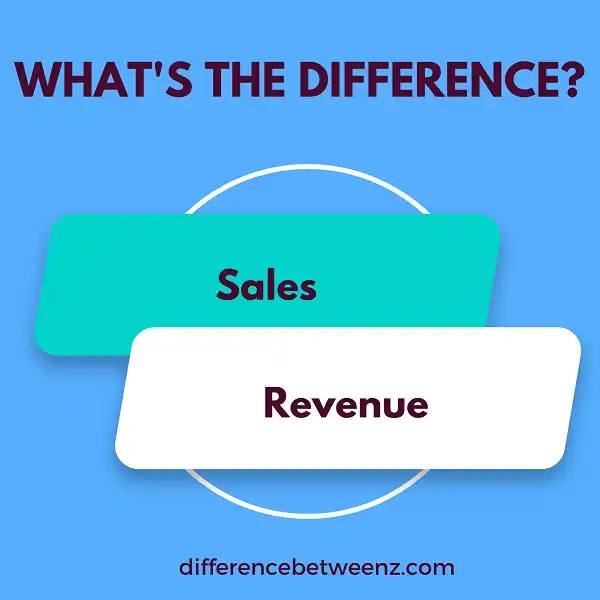In business, we often use the terms “sales” and “revenue” interchangeably. However, there is a distinction between the two terms that is important to understand. Sales refer to the amounts of products or services that are sold in a given period of time. Revenue, on the other hand, refers to the total income generated by sales during a specific period. In other words, revenue is what remains after deducting the cost of goods sold from sales. It’s important to understand this difference because it can impact how we measure our company’s success.
What are Sales?
Sales are the act of exchanging goods or services for money.
- Sales can be broken down into three main categories: retail sales, wholesale sales, and manufacturing sales. Retail sales are transactions that take place between a retailer and a customer. Wholesale sales are transactions that take place between a wholesaler and a customer.
- Manufacturing sales are transactions that take place between a manufacturer and a customer. Sales can also be classified by the type of product that is being sold. For example, there are food sales, clothes sales, furniture sales, and so on. Sales can also be classified by the method of sale.
- For example, there are online sales, phone sales, door-to-door sales, and so on. The bottom line is that Sales is the exchange of goods or services for money.
What is Revenue?
Revenue is the total amount of money that a company earns in a given period of time.
- This can include money earned from sales of goods or services, interest or investment income, and any other sources of income. Revenue is typically reported on a company’s financial statements. Revenue is different from profit, which is the amount of money that a company has left after subtracting all expenses.
- While revenue is an important metric for assessing a company’s financial health, it is not the only factor that should be considered. For example, a company with high revenue but a low-profit margin may be less successful than a company with lower revenue but a higher profit margin.
- Similarly, a company with high revenue but high expenses may also be less successful than a company with lower revenue but lower expenses. As such, Revenue is just one piece of information that should be considered when assessing a company’s financial health.
Difference between Sales and Revenue
Sales and revenue are two terms that are often used interchangeably, but they actually refer to two different things.
- Sales are the total amount of money that a company brings in from selling its products or services.
- Revenue, on the other hand, is the amount of money that a company has left after subtracting the costs of production.
- In other words, revenue is the profit that a company makes from its sales.
- Because of this, revenue is often viewed as a more important metric than sales.
- After all, a company can increase its sales by raising prices or selling more products, but it will only increase its revenue if it can do so without also increasing its costs.
As a result, analysts often pay more attention to a company’s revenue than its sales.
Conclusion
The ethical considerations of sales and revenue are important to understand. In business, it is often easy to blur the lines between what is legal and what is ethical. However, when making decisions that affect your company’s bottom line, it is crucial to be aware of the difference. In our previous blog post, we discussed the five principles of ethical selling. Today, we will explore how these principles can impact your revenue. Sales and revenue are two different things, but they are closely related. When you make a sale, you generate revenue for your company.
However, not all sales are created equal. Some sales may be more profitable than others or have a higher return on investment (ROI). It is important to identify which sales produce the most revenue for your business and focus on maximizing those transactions. While generating as much revenue as possible should always be a goal of any business, it is also essential to maintain high standards of ethics in order to protect your brand’s reputation.


